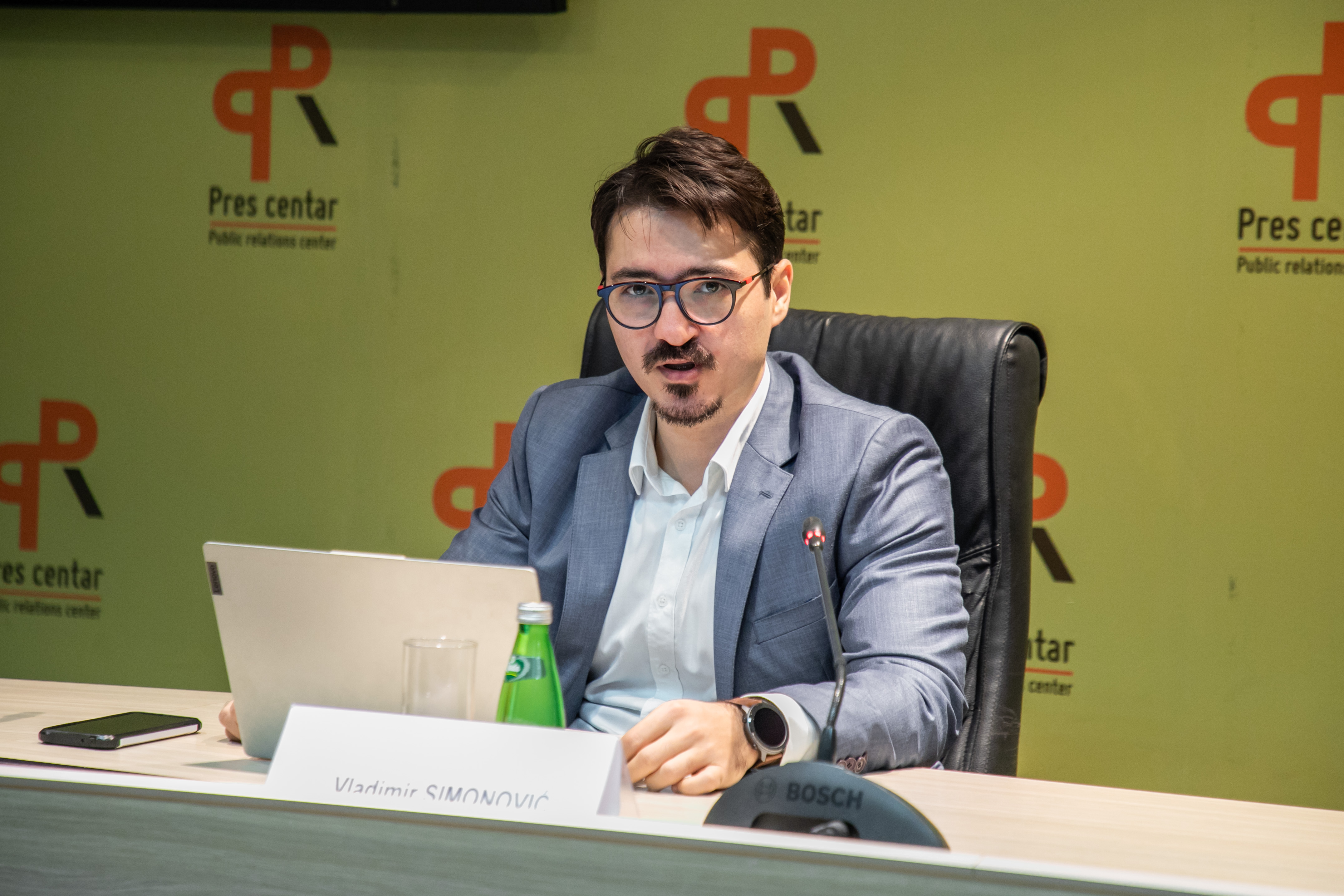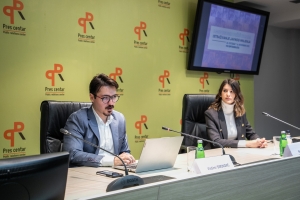In Montenegro, 22 percent of citizens believe that employers in Montenegro are ready to hire members of the LGBTI community, while 45 percent of them believe that they are not, according to a survey by the Center for Monitoring and Research (CeMI).
The research was conducted from October 28th to November 16th this year on a sample of 990 adult citizens of Montenegro.
The project coordinator of CeMI, Vladimir Simonovic, said at the press conference on the occasion of the presentation of the public opinion survey "LGBT persons and the labor market" that a positive change was recorded in relation to some attitudes about LGBT persons.
"The share of misinformed citizens that sexual orientation is different from heterosexual - a disease - has significantly decreased. The more educated a person is, the higher their level of information in relation to sexual orientation, and the lower the level of prejudice. A higher level of prejudice is observed among the older population," Simonovic said.
According to him, women are significantly less prone to homophobia than men, and residents of the central and southern parts of the country compared to the northern ones.
"There are significant differences compared to the national declaration. "Personal contact with an LGBT person, as in previous research, proved to be crucial, that is, knowing an LGBT person most likely implies the absence of homophobia," said Simonovic.
He said that 50 percent of respondents believe that we are born with our sexual orientation and gender identity.
"The share of citizens with the same attitude among those who state that they know a person who belongs to the LGBT population is 69 percent." However, only 22 percent of respondents state that they know an LGBT person. The percentage is significantly higher among younger respondents, better educated respondents, those who are divorced or not in a married/common-law relationship," Simonovic said.
He pointed out that only 38 percent of those surveyed believe that LGBT people are exposed to discrimination, compared to 46% of those who do not have such an opinion.
"The share of people who believe that LGBT people should be helped to realize their rights is increasing and now amounts to 41 percent, while 21 percent of respondents have no opinion on this issue." There is also a significant difference between male and female respondents in this question, so 47 percent of respondents believe that LGBT people should receive support for exercising their rights, with which 34 percent of respondents agree," said Simonovic.
He said that the majority of young adults (18-29) are supportive, as are the majority of respondents with a higher degree of education, and people who know a person who belongs to the LGBT population are especially supportive.
"Nationality plays a role in this issue as well," Simonovic added.
Speaking about LGBT people on the labor market, Simonovic said that the survey showed that 60 percent of respondents believe that LGBT people are represented on the labor market.
"Only 22% of respondents believe that employers in Montenegro are ready to employ members of the LGBTI community, 45% believe they are not, while 33% are those who have no opinion on this issue." Here, too, we see that more educated citizens, as well as those of a younger age, believe to a greater extent that employers are ready to hire an LGBTI person," said Simonovic.
He said that 18 percent of respondents state that LGBT people experience discrimination in the workplace because of their sexual orientation, and that 51 percent of them believe that they do not, while 31 percent have no opinion.
"Among those who know a person who belongs to the LGBT community, 44 percent believe that LGBT people experience discrimination, 43 percent that they do not, while 13 percent have no opinion," Simonovic said.
As he said, 45 percent of respondents believe that members of the LGBTI community have a better chance of getting a job if they do not disclose their sexual orientation, with which 26 percent disagree.
"Among those who know one or more LGBT people, 68 percent believe that the chances of employment increase if a person hides their sexual orientation." "Only 10 percent of respondents know a legal entity that employs one or more people from the LGBTI population," said Simonovic.
He explained that statistically significant differences were observed in relation to region, education and acquaintance with a person belonging to the LGBT population.
"Thus, only four percent of respondents from the northern region know a legal entity that employs one or more persons from the LGBTI population, while the percentage of this answer recorded in the central part was 15 percent." "Among those who know a person from the LGBT population, the percentage is 40 percent," Simonovic said.
He said that 47 percent of respondents believe that LGBT people should not hide their sexual orientation in the workplace, while 30 percent of those believe that they should.
The project coordinator of CeMI, Maja Bjelic, said that the public opinion survey is one of the activities of the project "Contribution to the inclusion of LGBT persons on the labor market", which is implemented by CeMI, and financially supported by the Ministry of Human and Minority Rights of Montenegro.
"The aim of the project is to contribute to increasing the level of respect for the human rights of members of the LGBT population in Montenegro. "The contribution to the achievement of this goal is reflected in the reduction of the level of discrimination against LGBT persons in employment, through the set of project activities," said Bjelic.
According to her, in order to encourage the acceptance of LGBT persons in business environments, direct communication and education of relevant stakeholders, CeMI organizes meetings with representatives of the public and private sectors, as well as with employees in the personnel department of the same, during which methods of inclusion of LGBT persons during employment are presented. and advocated recommendations for the improvement of community rights in this area.
"In addition to the above-mentioned activities, and with the aim of united action in the fight for the rights of LGBT persons, CeMI has prepared a Public Declaration on combating discrimination in the workplace - Accept DIVERSITY! Reject DISCRIMINATION! which will be supported by civil society organizations and representatives of the public and private sectors across the country," concluded Bjelic.



